END SEA BED MINING
Japan finds over 200 million tonnes of battery metals in seabedCecilia Jamasmie | June 25, 2024 |
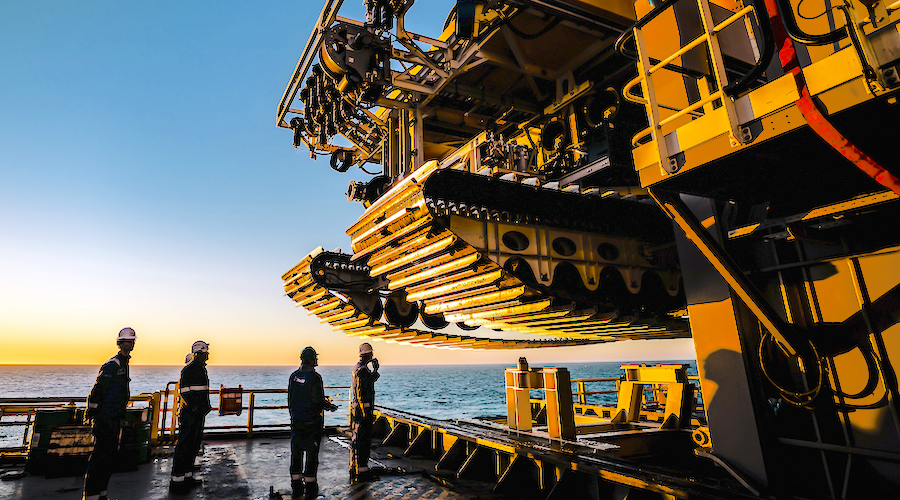
Nodules collector vehicle. Image courtesy of The Metals Company.)
Japanese researchers have found more than 200 million tonnes of manganese nodules rich in battery metals in the Pacific Ocean, within the country’s exclusive economic zone.

The team of experts from the University of Tokyo and the Nippon Foundation said the fist-sized nodules cover an extensive area of the seabed near Minamitorishima, a remote Tokyo Island.
These metals-rich rocks are located at depths of about 5,500 metres and are thought to be very similar to the polymetallic nodules found in the Clarion-Clipperton zone in the Pacific, as they hold cobalt, nickel and copper in addition to manganese.
The team estimates the deposit contains 610,000 tonnes of cobalt (equivalent to 75 years of Japan’s consumption) and 740,000 tonnes of nickel (11 years), according to the Japan Times.
The Nippon Foundation and other entities expect to start large-scale extraction of nodules next year, to be delivered to Japanese companies with the capability to process them. Starting in 2026, the non-profit plans to set up a joint venture with multiple Japanese companies to develop the minerals as locally sourced materials.
The University of Tokyo will contribute to the project from an academic standpoint by conducting detailed analysis of the material extracted from the seabed.
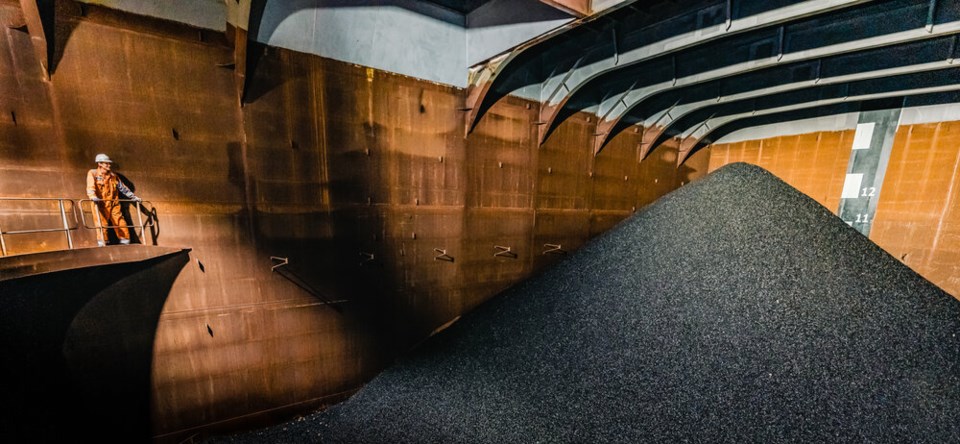
Polymetallic nodules collected by The Metals Company during a deep sea trial in the Pacific Ocean in November 2022. (Image: The Metals Company.)
The presence of manganese nodules in the area was first found during a survey in 2016, which involved a team from the university and other organizations.
A thorough sampling survey was carried out from late April to early June this year to calculate the deposit estimates.
BMO analyst Colin Hamilton said the depth at which the nodules are found makes mining them more complex than it sounds. “Extraction will not be simple, and we see this as a potential test case for the benefits versus disadvantages of deep sea mining of materials relating to the global fuel to materials transition,” he wrote in a brief on Tuesday.
Hamilton noted that several key metals consumers have already stated they will not buy deep-sea-sourced materials until further studies are conducted on the potential impact of these activities
The presence of manganese nodules in the area was first found during a survey in 2016, which involved a team from the university and other organizations.
A thorough sampling survey was carried out from late April to early June this year to calculate the deposit estimates.
BMO analyst Colin Hamilton said the depth at which the nodules are found makes mining them more complex than it sounds. “Extraction will not be simple, and we see this as a potential test case for the benefits versus disadvantages of deep sea mining of materials relating to the global fuel to materials transition,” he wrote in a brief on Tuesday.
Hamilton noted that several key metals consumers have already stated they will not buy deep-sea-sourced materials until further studies are conducted on the potential impact of these activities
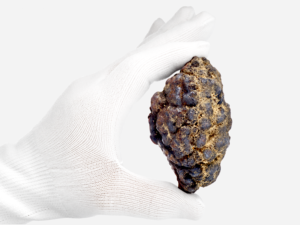
Polymetallic nodules, also called manganese nodules, contain four essential battery metals: cobalt, nickel, copper and manganese, in a single ore. (Image courtesy of The Metals Company.)
Major global banks such Credit Suisse, Lloyds, NatWest, and Standard Chartered, Dutch bank ABN Amro, and Spanish group Banco Bilbao Vizcaya Argentaria, have also make a point. They have all recently introduced policies that rule out funding deep-sea exploration and extraction.
Demand for nickel and cobalt is expected to surge in the coming decades. According to a White House paper, the demand for these metals is estimated to increase by 400% to 600% as battery-powered technology replaces oil and gas-powered systems.
The Metals Company (Nasdaq: TMC), one of the most advanced firms scooping up nodules from the seafloor, announced in early June that it had successfully produced the world’s first cobalt sulphate derived exclusively from seafloor polymetallic nodules.
The International Seabed Authority (ISA) is currently working on the world’s initial regulations for underwater mining, with plans to finalize the code by 2025. Despite the absence of formal rules, deep sea mining could technically start as soon as July, coinciding with the ISA’s upcoming meeting.
Major global banks such Credit Suisse, Lloyds, NatWest, and Standard Chartered, Dutch bank ABN Amro, and Spanish group Banco Bilbao Vizcaya Argentaria, have also make a point. They have all recently introduced policies that rule out funding deep-sea exploration and extraction.
Demand for nickel and cobalt is expected to surge in the coming decades. According to a White House paper, the demand for these metals is estimated to increase by 400% to 600% as battery-powered technology replaces oil and gas-powered systems.
The Metals Company (Nasdaq: TMC), one of the most advanced firms scooping up nodules from the seafloor, announced in early June that it had successfully produced the world’s first cobalt sulphate derived exclusively from seafloor polymetallic nodules.
The International Seabed Authority (ISA) is currently working on the world’s initial regulations for underwater mining, with plans to finalize the code by 2025. Despite the absence of formal rules, deep sea mining could technically start as soon as July, coinciding with the ISA’s upcoming meeting.
Norway to award Arctic blocks for seabed mining in 2025
By Reuters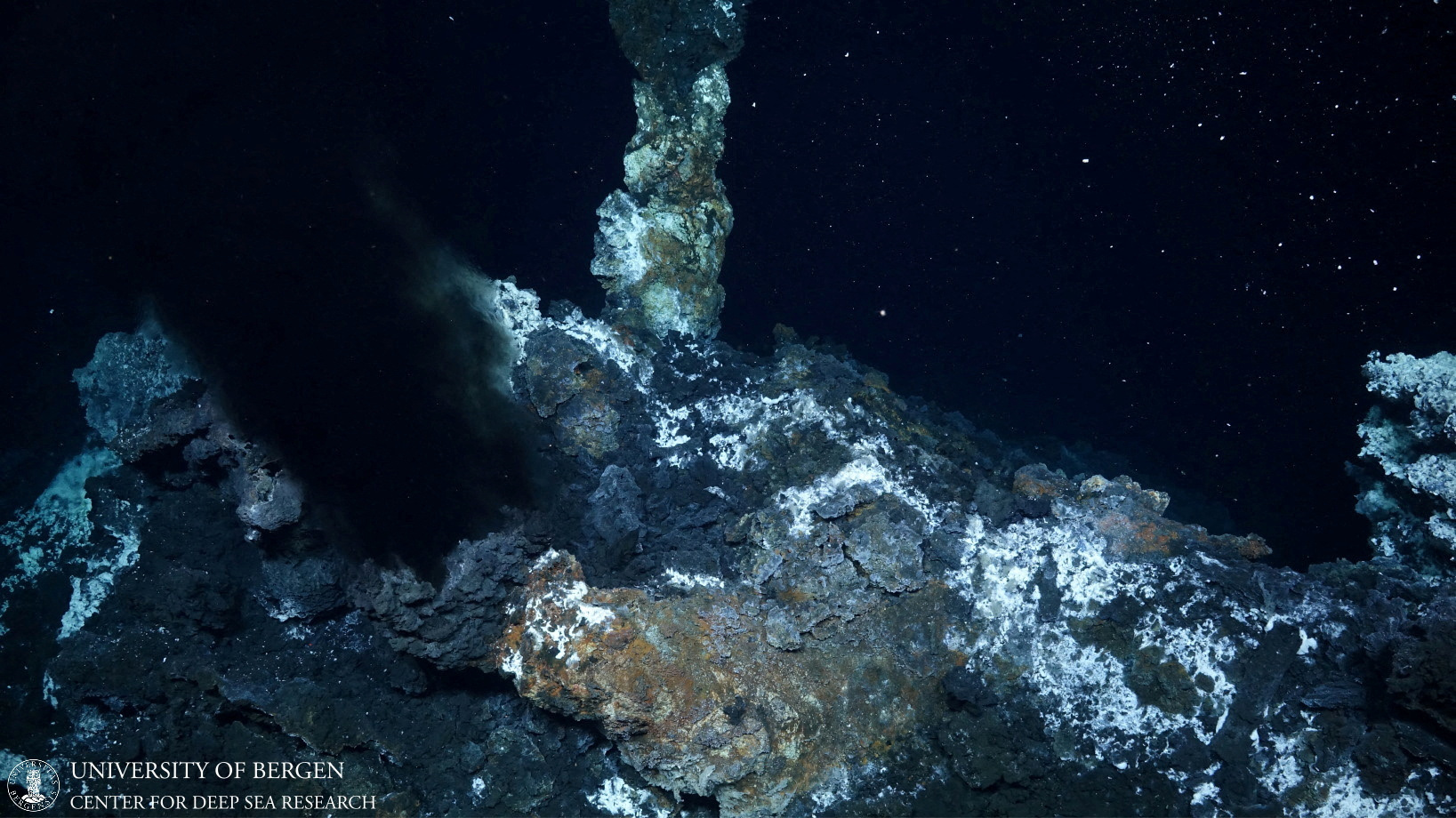
A view shows active chimney venting at the Loki's Castle Vent Field on the Arctic Mid-Oceanic Ridge, and white microbial mats can be seen on the chimney at a depth of around 2,500m, in this undated handout picture.

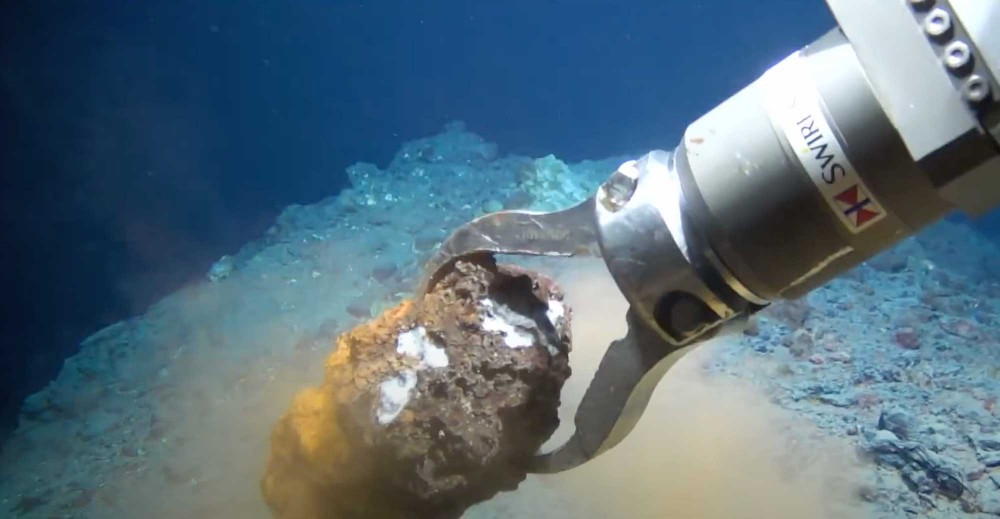
Norway eyes extraction of seabed minerals in the North Atlantic.
By Reuters
June 26, 2024

A view shows active chimney venting at the Loki's Castle Vent Field on the Arctic Mid-Oceanic Ridge, and white microbial mats can be seen on the chimney at a depth of around 2,500m, in this undated handout picture.
University of Bergen, Centre for Deep Sea Research/Handout via REUTERS /File Photo
OSLO, June 26 (Reuters) - Norway offered large areas of the Arctic region for its inaugural seabed mineral licensing round on Wednesday and aims to award exploration permits during the first half of 2025, the country's energy ministry said.
Norway may become the first country in the world to start commercial deepsea mining, hoping to extract minerals needed for solar panels, wind turbines and electric car batteries needed to replace fossil fuel energy.
"The world needs minerals for the green transition, and the government wants to explore if it is possible to extract seabed minerals in a sustainable manner from the Norwegian continental shelf," Energy Minister Terje Aasland said in a statement.
The government has previously said preliminary official resource estimates showed substantial accumulations of metals and minerals, ranging from copper to rare earth elements.
In January, the Norwegian parliament voted in favour of opening about 280,000 square kms (108,000 square miles) of ocean areas between Jan Mayen island and the Svalbard archipelago for seabed mineral exploration.
The 386 blocks proposed on Wednesday cover about 38% of the total area opened by parliament, and the selection was based on industry input, the energy ministry said.
Norway may become the first country in the world to start commercial deepsea mining, hoping to extract minerals needed for solar panels, wind turbines and electric car batteries needed to replace fossil fuel energy.
"The world needs minerals for the green transition, and the government wants to explore if it is possible to extract seabed minerals in a sustainable manner from the Norwegian continental shelf," Energy Minister Terje Aasland said in a statement.
The government has previously said preliminary official resource estimates showed substantial accumulations of metals and minerals, ranging from copper to rare earth elements.
In January, the Norwegian parliament voted in favour of opening about 280,000 square kms (108,000 square miles) of ocean areas between Jan Mayen island and the Svalbard archipelago for seabed mineral exploration.
The 386 blocks proposed on Wednesday cover about 38% of the total area opened by parliament, and the selection was based on industry input, the energy ministry said.

Reuters Graphics
Seabed mining, however, has attracted criticism from environmentalists concerned at the prospect the pursuit of profit will disrupt one of the last parts of the natural environment that is relatively pristine and is little understood. They are challenging Norway's plans in court.
WWF, which filed the lawsuit in May, condemned the proposal on Wednesady, saying it was a significant blow to the country's reputation as responsible steward of the oceans.
Greenpeace, also on Wednesday, said the proposed blocks constituted a "shockingly large" area, given previous warnings from scientists regarding the potential impact on fragile ecosystems.
Seabed mineral exploration plans also face opposition from a number of countries, including France, that have called for a global moratorium to take more time to better understand the impact on deepsea organisms.
The Council of the European Union on Tuesday "noted, opens new tab with concern" Norway's seabed mining plans, emphasising the need for a thorough impact assessment.
The Norwegian government has said the initial exploration stage will have a minimal impact on seabed organisms and that companies will need separate consents before any production can start.
Seabed mining, however, has attracted criticism from environmentalists concerned at the prospect the pursuit of profit will disrupt one of the last parts of the natural environment that is relatively pristine and is little understood. They are challenging Norway's plans in court.
WWF, which filed the lawsuit in May, condemned the proposal on Wednesady, saying it was a significant blow to the country's reputation as responsible steward of the oceans.
Greenpeace, also on Wednesday, said the proposed blocks constituted a "shockingly large" area, given previous warnings from scientists regarding the potential impact on fragile ecosystems.
Seabed mineral exploration plans also face opposition from a number of countries, including France, that have called for a global moratorium to take more time to better understand the impact on deepsea organisms.
The Council of the European Union on Tuesday "noted, opens new tab with concern" Norway's seabed mining plans, emphasising the need for a thorough impact assessment.
The Norwegian government has said the initial exploration stage will have a minimal impact on seabed organisms and that companies will need separate consents before any production can start.
Oslo prepares first licensing round for seabed mining
The Norwegian government is ready to look thousands of meters into the abyss for precious mineral and metals, and now announces public consultations for a first licensing round.
The Norwegian government is ready to look thousands of meters into the abyss for precious mineral and metals, and now announces public consultations for a first licensing round.

Norway eyes extraction of seabed minerals in the North Atlantic.
Photo: screenshot of video from the Norwegian Shelf Directorate
By Atle Staalesen
June 26, 2024
BARENTS OBSERVER
Amid mounting domestic and international criticism, the Norwegian Ministry of Energy is starting preparations for a first licensing round on seabed minerals.
“The world needs minerals for the green transition, and the government wants to explore if it is possible to extract seabed minerals in a sustainable manner from the Norwegian continental shelf,” Energy Minister Terje Aslant says in a statement.
“Today, we are presenting our proposal for areas to be announced in the first licensing round for seabed minerals for public consultation. We plan to award licenses in the first half of 2025,” he explains.
The proposal includes large areas in the Norwegian Sea and the Greenland Sea.
Norway is among the first countries in the world to open up for commercial seabed mineral mining.
The controversial mining is supported by a solid majority in the Storting, the Norwegian parliament. But environmentalists and international experts warn about potential devastating consequences.
“I am not proud of being part of the ‘sea nation Norway’ today,” says Truls Gulowsen, leader of Friends of the Earth Norway.
“I believe researchers, environmentalists and the rest of the world looks strange at us,” he says in a comment on Facebook.
Also the Norwegian Sámi Parliament expresses opposition to the mining plans.
“For the Sámi and other Indigenous Peoples, the ocean is not just a resource, but a foundation of life, culture, and sustenance. The potential environmental degradation caused by deep sea mining could severely impact our food security, disrupt our traditional practices, and undermine our cultural heritage,” a statement from the Sami Council reads.
Also the EU is skeptical. Following Norway’s decision to greenlight seabed mining in early January 2024, the European Parliament voted in favour of a resolution against the plans.
With the resolution, the Parliament’s reaffirmed its support for a seabed mining moratorium and called on the EU Commission, Member States and all countries to apply a precautionary approach.
Amid mounting domestic and international criticism, the Norwegian Ministry of Energy is starting preparations for a first licensing round on seabed minerals.
“The world needs minerals for the green transition, and the government wants to explore if it is possible to extract seabed minerals in a sustainable manner from the Norwegian continental shelf,” Energy Minister Terje Aslant says in a statement.
“Today, we are presenting our proposal for areas to be announced in the first licensing round for seabed minerals for public consultation. We plan to award licenses in the first half of 2025,” he explains.
The proposal includes large areas in the Norwegian Sea and the Greenland Sea.
Norway is among the first countries in the world to open up for commercial seabed mineral mining.
The controversial mining is supported by a solid majority in the Storting, the Norwegian parliament. But environmentalists and international experts warn about potential devastating consequences.
“I am not proud of being part of the ‘sea nation Norway’ today,” says Truls Gulowsen, leader of Friends of the Earth Norway.
“I believe researchers, environmentalists and the rest of the world looks strange at us,” he says in a comment on Facebook.
Also the Norwegian Sámi Parliament expresses opposition to the mining plans.
“For the Sámi and other Indigenous Peoples, the ocean is not just a resource, but a foundation of life, culture, and sustenance. The potential environmental degradation caused by deep sea mining could severely impact our food security, disrupt our traditional practices, and undermine our cultural heritage,” a statement from the Sami Council reads.
Also the EU is skeptical. Following Norway’s decision to greenlight seabed mining in early January 2024, the European Parliament voted in favour of a resolution against the plans.
With the resolution, the Parliament’s reaffirmed its support for a seabed mining moratorium and called on the EU Commission, Member States and all countries to apply a precautionary approach.
No comments:
Post a Comment